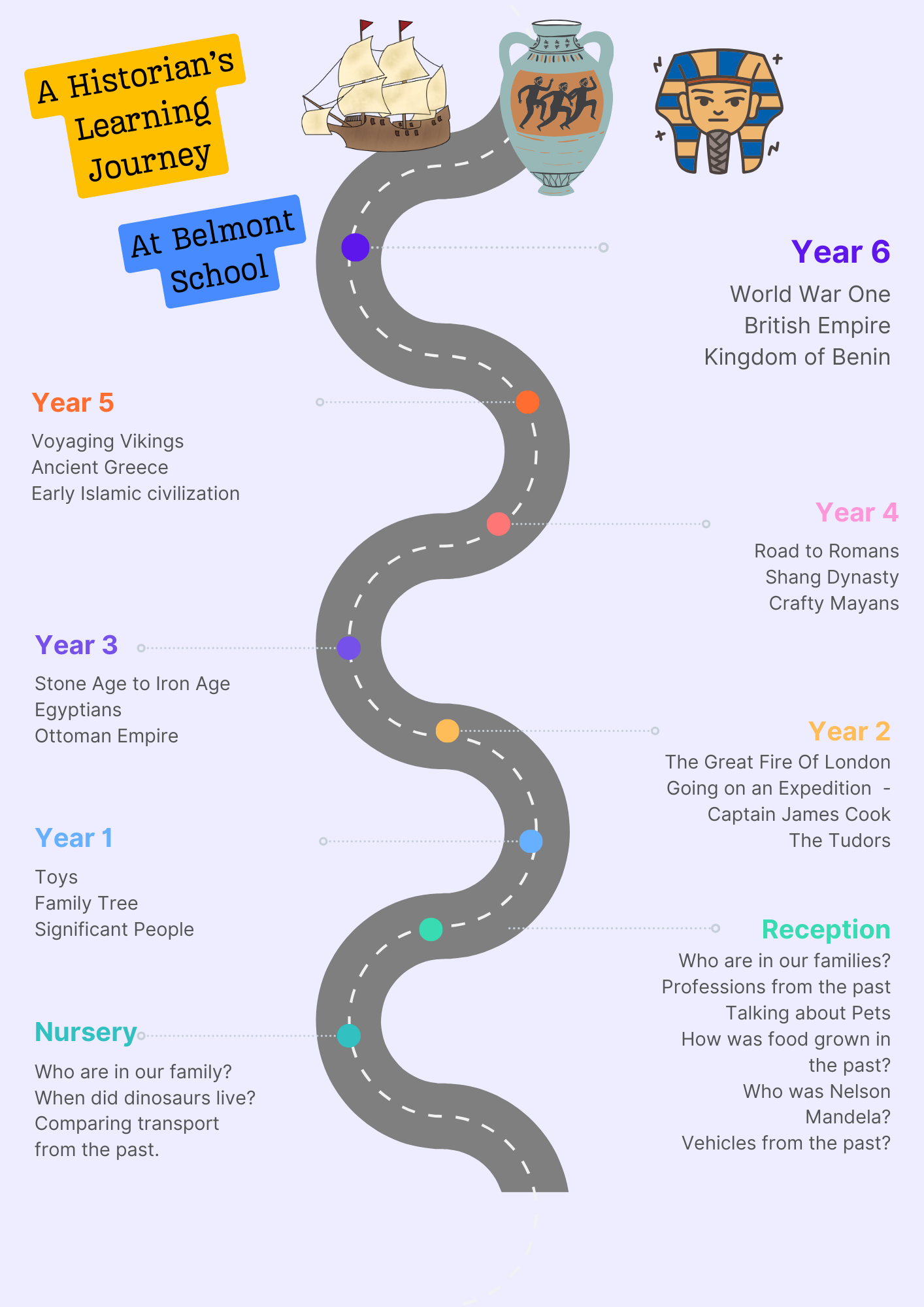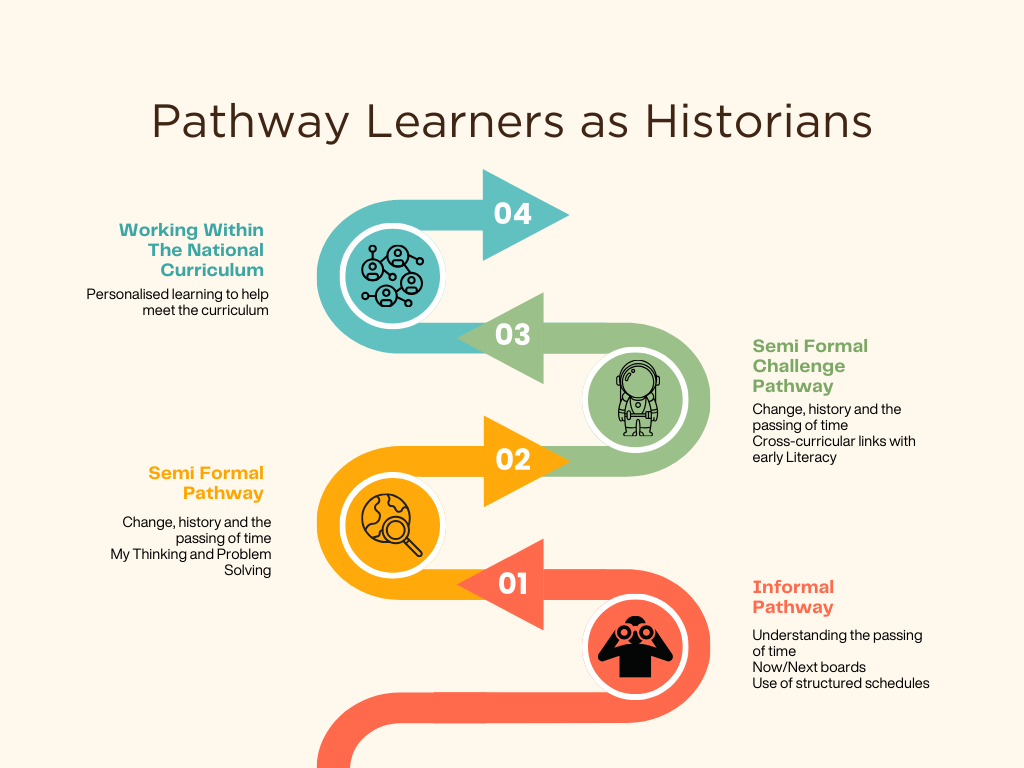History at Belmont
Intent:
Our History curriculum is designed to develop pupils’ curiosity and fascination about the history of the world and its peoples, which leads them to an understanding of the world around them today. Through the study of different cultures, pupils will find representations of themselves in a broad curriculum which represents the wide diversity of the school. Pupils will attain cultural capital through learning which emphasises heritage.
Pupils investigate a range of events – both in Britain and abroad – to help develop their knowledge. We are committed to providing pupils with opportunities to examine and make enquiries about their local area of Harrow and London, so that they can develop a real sense of who they are, their heritage and what has led to this. We are also developing the pupils’ ability to apply historical skills, to enable them to confidently communicate their findings and understanding to a range of audiences in a variety of ways (e.g., visual, written, oral, role play, presentations, art).
Through high quality teaching, we aim to develop the following essential characteristics of historians:
- Excellent knowledge of key events from the past, both in Britain and the wider world;
- A clear timeline of the past and chronology of significant time periods and societies, in Britain and beyond.
- An in-depth understanding of the substantive concepts and pattern of actions that occur frequently in history; empire, tax, trade and invasion.
- A sound base of historical knowledge and challenging vocabulary;
- Develop clear and analytical thinking to reach an understanding of the ways in which events and people are interdependent and interconnected;
- A strong knowledge of how historians study the past and construct accounts;
- Fluency in complex, historical enquiry and the ability to apply questioning skills, as well as effective presentation techniques;
- The ability to reach clear conclusions and explain their findings;
- The ability to express well-balanced opinions about past and current issues in society and the wider world;
- A genuine interest in the subject and a real sense of curiosity about the past;
Implementation:
History is organised in half-termly units of work, which can be delivered both discretely and through links with other curriculum areas. CPD and curriculum documents support teachers to plan the curriculum to incorporate the following:
- A knowledge organiser which outlines the essential knowledge (including vocabulary) all pupils must master and apply in lessons;
- A cycle of lessons for each half termly unit, which carefully plans for progression, personalisation and in- depth concentration on the historical skills suited to the age group;
- A low stakes quiz which is tested regularly to support learners’ ability to block learning and increase space in the working memory;
- Challenge questions for pupils to apply their learning in a philosophical/open manner;
- Trips to places of historical interests and visiting experts who will enhance the learning experience;
- Appropriate curriculum themed home learning tasks which pupils complete with adults at home;
- Well-designed, engaging activities that are appropriate for the time period being studied.
Impact:
Our History curriculum leads to pupils making good or better progress over time across key stages, relative to their individual starting points and their progression of skills, in relation to our intent. Pupils’ work demonstrates that history is taught at an age-appropriate standard across each year group. Work is of good quality and demonstrates pupils are acquiring knowledge, skills and vocabulary in an appropriate sequence.
Pupil voice demonstrates that they enjoy history, are confident and able to talk about what they have learnt using subject specific vocabulary to recall their learning over time. They can explicitly make connections between what they have previously learnt and what they are currently learning, and can describe significant periods, events and people from the past. They can use analytical thinking to use a range of sources to reach conclusions about interpretations of the past. They can remember more, know more and do more.


